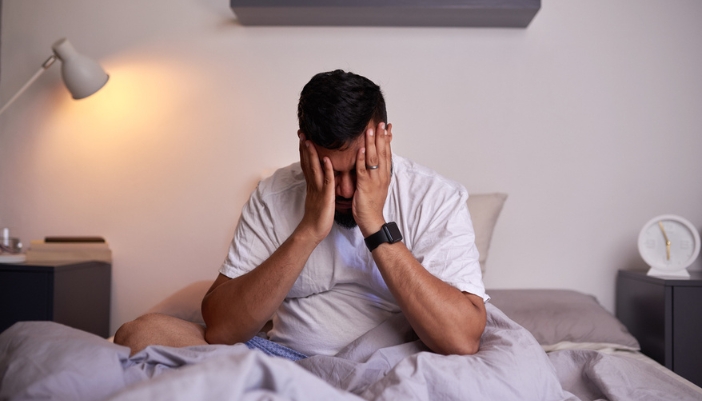It’s 2 a.m. You’re lying in bed, wide awake, staring at the ceiling like it holds the secrets of the universe. Was it the stress? The to-do list? Or—wait—was it that iced coffee you grabbed at 4 p.m. because you thought you’d “power through” the afternoon slump? Yep, caffeine strikes again. It’s sneaky, but its effects on sleep can be tamed. Our experts at Christie's Appliance & Mattress Company have helped plenty of customers find the perfect sleep setup—and trust us, sometimes the problem isn’t your mattress; it’s your coffee habits!
Disclaimer: The information on this site is not intended or implied to be a substitute for professional medical advice, diagnosis, or treatment. If you suffer from any symptoms or diagnoses we discuss, please consult your physician prior to making any decisions.

What Happens When You Consume Caffeine?
Caffeine isn’t just a morning hero—it’s a chemical powerhouse with a sneaky side hustle: keeping you awake when you don’t want it to. Let’s break down what happens when you take that first sip of coffee (or soda or energy drink) and how it messes with your sleep plans.
- Caffeine blocks adenosine, your body’s natural “time-to-sleep” signal. Adenosine builds up in your brain throughout the day to make you feel tired. Caffeine steps in like an unwanted guest, saying, “Not today, sleepiness!”
- It stimulates the central nervous system. Expect a temporary energy surge, boosted focus, and quicker reflexes—perfect for your morning commute but not so great at 10 p.m.
- Caffeine’s half-life is longer than you think. The time it takes for your body to process half of the caffeine you’ve consumed can be anywhere from 4 to 6 hours, sometimes longer, depending on your metabolism.
- Your body’s caffeine tolerance varies. Age, genetics, and how often you consume caffeine affect how long it lasts.

Caffeine’s Impact on the Sleep-Wake Cycle
Think of caffeine like a party crasher at your brain’s most peaceful event—your body’s natural sleep cycle. Instead of letting your internal clock wind down, caffeine sticks around, keeping your brain on high alert when it should be powering down.
- Delays the release of melatonin. Melatonin, your “get ready for bed” hormone, kicks in as the sun sets. But when caffeine is still lurking in your system, melatonin gets delayed, making it harder to fall asleep.
- Keeps you awake longer. That late-night energy you didn’t ask for? Blame caffeine. It can trick your brain into thinking it’s not tired, leading to later bedtimes and reduced overall sleep time.
- Disrupts deep sleep. Even if you do fall asleep, caffeine can decrease the amount of slow-wave sleep you get. This is the restorative sleep your body needs to feel refreshed. Without it, you’re more likely to wake up groggy.
- Causes nighttime awakenings. Light sleep and restlessness are common side effects of caffeine’s lingering effects, making it harder to stay asleep through the night.
Pro Tip:
If you wake up more tired than when you went to bed, it could be a sign that caffeine is reducing your deep sleep. Try cutting back or moving your last cup to the morning to see if it helps!

4 Tips to Manage Caffeine for Better Sleep
Good news: You don’t have to give up coffee to sleep better—you just need a smarter strategy. You can still enjoy your favorite pick-me-up without tossing and turning all night by tweaking your timing and intake. Here’s how:
- Set a caffeine cutoff time. Experts suggest cutting off caffeine 6-8 hours before bedtime. If you aim for a 10 p.m. bedtime, 2 p.m. should be your caffeine “curfew.”
- Limit your daily intake. Stick to the recommended 400 mg of caffeine or less daily (about 4 cups of brewed coffee). And don’t forget sneaky sources like tea, chocolate, and energy drinks.
- Track how caffeine affects you. Are you a slow metabolizer who feels wired hours after one cup, or do you burn through it quickly? Pay attention to how your body reacts and adjust your habits accordingly.
- Switch to afternoon alternatives. Opt for caffeine-free herbal teas like chamomile or rooibos, or try decaf coffee if you need the ritual without the kick.
Pro Tip:
Love the comfort of a warm evening drink? Try golden milk (turmeric-based) or a soothing peppermint tea to wind down while keeping your sleep cycle intact.

Can You Build Tolerance to Caffeine’s Impact on Sleep?
Yes and no. While your body can develop a tolerance to caffeine’s ability to keep you alert (this is why your second cup hits differently after years of coffee drinking), its impact on sleep doesn’t fade as easily. Even if you don’t feel as “buzzed” as you used to, caffeine can still interfere with melatonin production and deep sleep. So, if you’re banking on tolerance to save your nights, think again—it’s all about timing and moderation.
Don’t Let Caffeine Crash Your Sleep Party
Caffeine may be your daytime BFF, but it can easily become your nighttime nemesis if you don’t set boundaries. Whether you’re fine-tuning your caffeine cutoff time or searching for the coziest sleep setup, our experts at Christie's Appliance & Mattress Company are ready to help. Drop by and explore our selection of mattresses, pillows, and everything else you need to create the perfect sleep oasis. Got questions about sleep or anything else keeping you up at night? We’ve got answers—come chat with us today!
